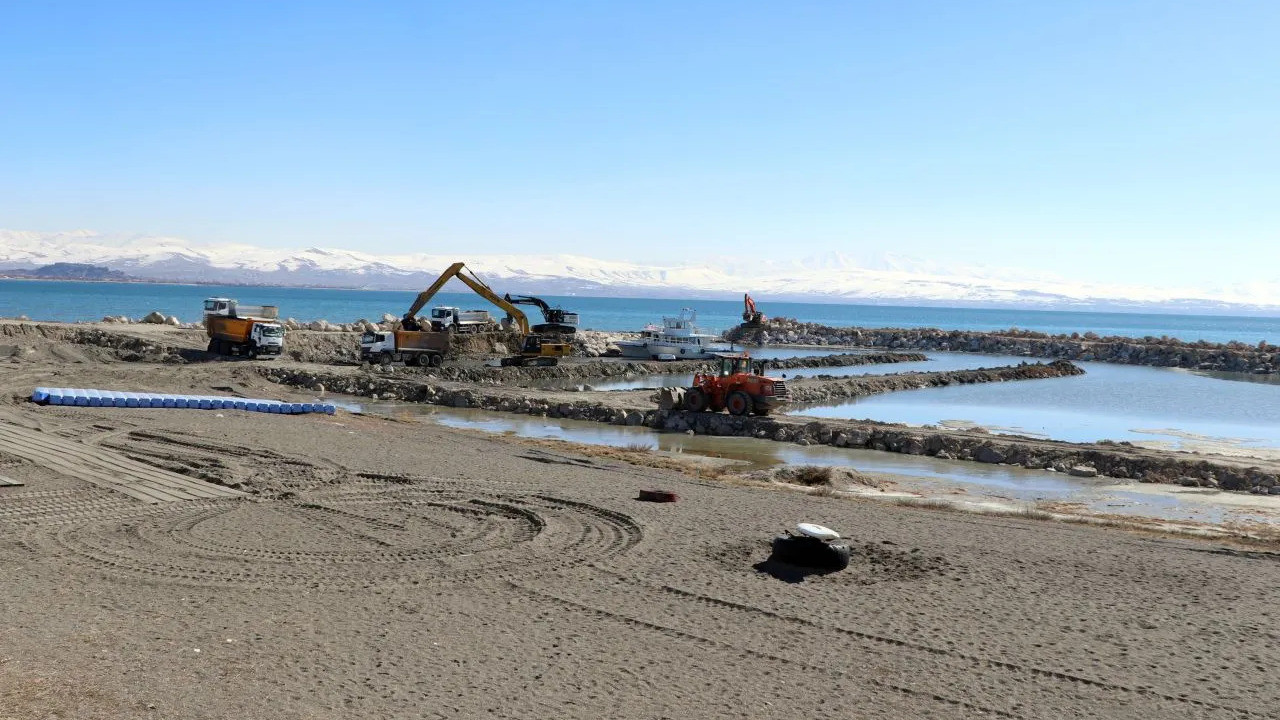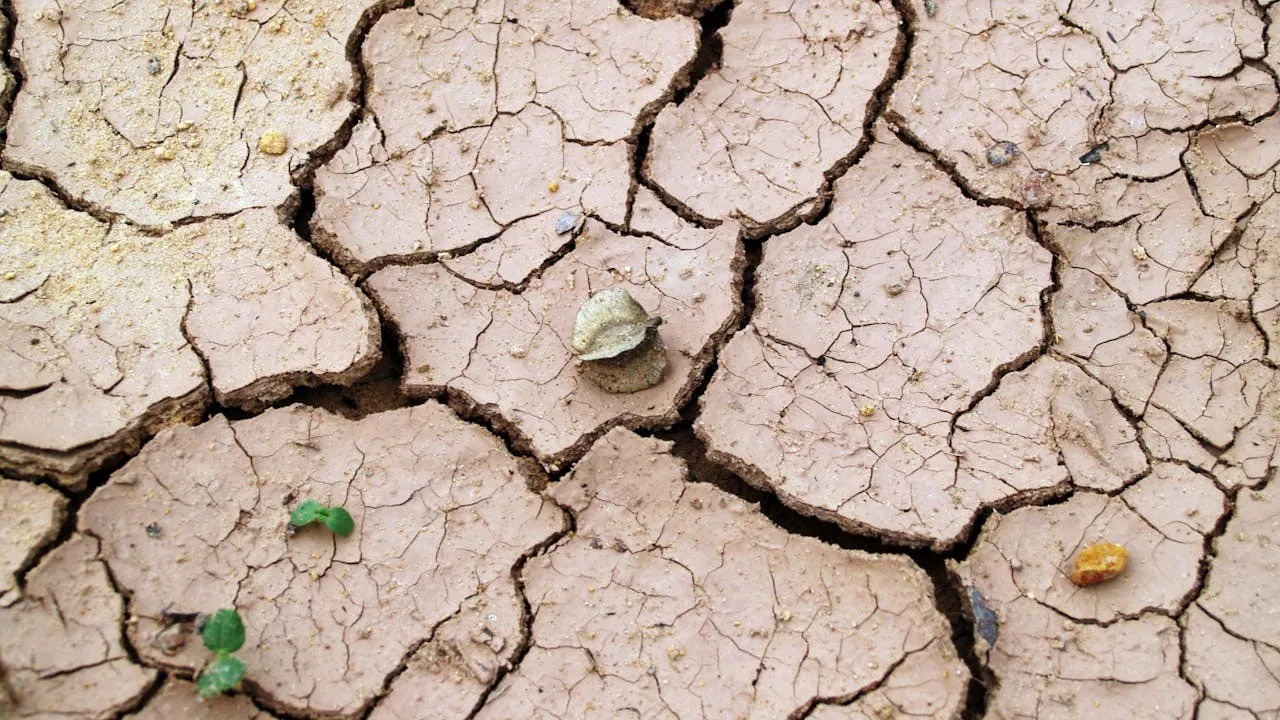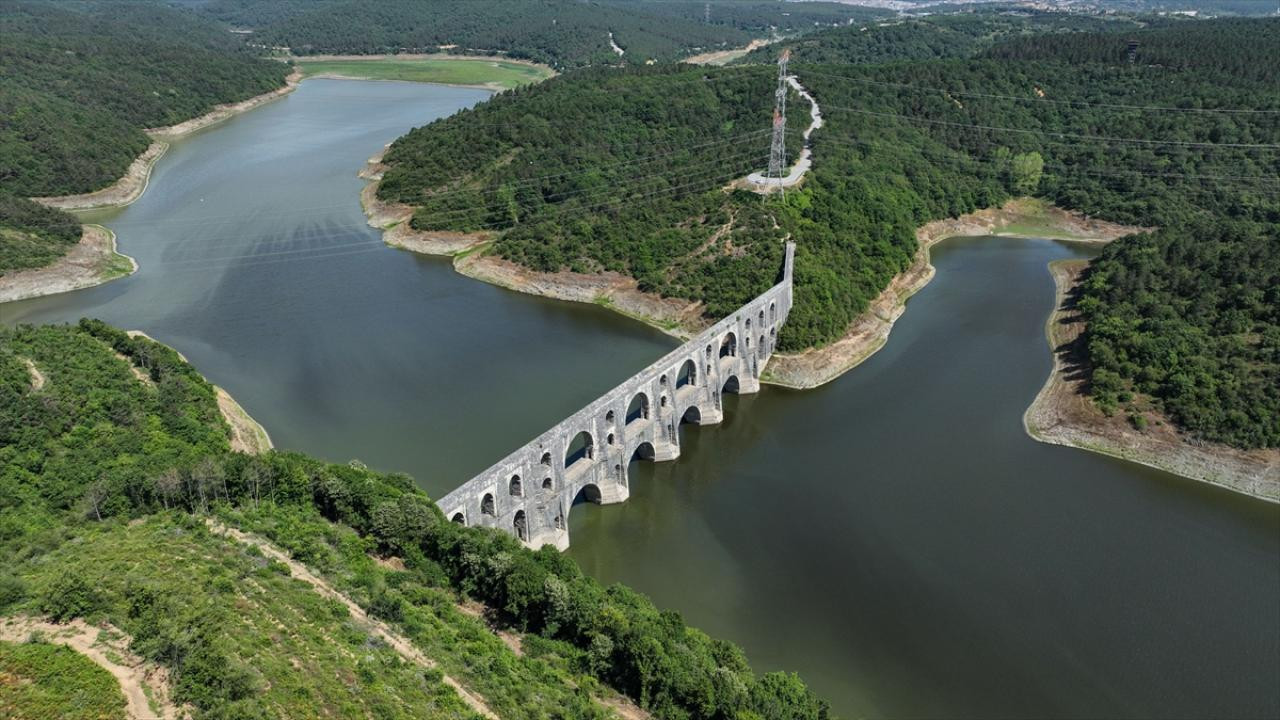Drought rings alarm bells in Cyprus
The Greek Cypriot government announced an “emergency action plan” as the island is experiencing one of the driest years since 1900.
Nikolaos Stelya / DUVAR
The government in the Republic of Cyprus has announced an emergency action plan as the island is experiencing one of the driest periods in recent years.
According to Agriculture Minister Maria Panayiotou, Cyprus has been experiencing one of the driest years since 1900, ringing alarm bells for especially the agriculture sector.
Dams and reservoirs are on high alert in the Republic of Cyprus, which is facing a major drought in the middle of the tourism season. The occupancy rate of the dams, which was 47 percent in March, dropped to 44.8 percent as of the beginning of June. The situation in some dams was described as “dire.”
Kouris, the island's largest dam, has reached only 38.4 percent of its capacity. In the same period last year, this rate was 63.3 percent. While the Argaka dam was completely full last year, this year it is only at 22.2 percent. The Kalavassos dam is at 29.7 percent, while the Vyzakia dam is at 33.9 percent.
According to the Water Development Department, the dams have a total capacity of 290 million cubic meters. However, only 130.2 million cubic meters of water currently exist at the dams. In the same period last year, this figure was 197 million cubic meters.
The meteorological service does not expect any significant rainfall in the coming days.
The government’s response
Panayiotou announced the measures the government will take after a cabinet meeting.
Among the measures announced is the use of boreholes to meet farmers' water needs from July to December. In addition, five new water purification systems will be installed for irrigation purposes, making contaminated water usable.
Accordingly, legislation will be tightened and fines will be increased to prevent water waste. The government will provide subsidies to those investing in smart irrigation systems that save water and improve infrastructure.
Small-scale desalination plants for farmers and producers will be encouraged. In addition, public awareness campaigns will be organized to reduce water consumption and farmers will be trained in better water management.
The government, which has been in constant contact with the EU regarding the drought crisis, aims to support the agricultural sector and to make more efficient use of water resources across the island with these steps.
Farmers prepare to protest
Meanwhile, farmers are preparing to organize protests demanding more water allocations for agricultural land. Two simultaneous protests will be organized, one in Paphos and the other in Xylophagou in Larnaca.
According to the Cyprus Mail, Andreas Karios, the representative of the potato farmers, stated that the protests will be peaceful, but if their demands are not met, they may take more drastic measures in the future.
Cypriot farmers warned that if the water shortage continues, agricultural production will decrease and consumer prices will increase. They said that they explained the seriousness of the problem at a meeting with the Agriculture Minister and representatives of the water development department, but that “the agricultural sector was ignored.”
Drought also affects the Northern Cyprus
The drought affecting the whole island of Cyprus is causing serious problems in the northern part of the island as well. With the decrease in precipitation and increase in temperatures in recent years, concerns about water resources in Turkish Cyprus have started to increase.
Officials said that the filling rates in the dams in Northern Cyprus are also on the decline.
This development is causing new problems due to the fact that the water infrastructure of Northern Cyprus has not been renewed on time and is far from meeting the needs of the growing population, as opposed to the water transported by pipeline from Turkey.
Local sources reported that there were significant losses in the harvest of grain crops such as wheat and barley in the Mesaoria Plain, one of the regions most affected by the drought. Citrus producers are also worried about the drying of trees due to water shortages.
The same sources stated that underground water resources are also under threat.
(English version by Alperen Şen)

 World's largest soda lake in Turkey shrinks due to drought, extreme evaporationEnvironment
World's largest soda lake in Turkey shrinks due to drought, extreme evaporationEnvironment Turkey faces high water stress according to UN Water reportEnvironment
Turkey faces high water stress according to UN Water reportEnvironment Istanbul's dams emptying with arrival of summer: Levels revert to five months agoEnvironment
Istanbul's dams emptying with arrival of summer: Levels revert to five months agoEnvironment